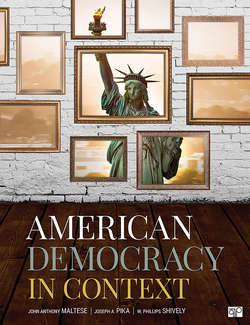Читать книгу American Democracy in Context - Joseph A. Pika - Страница 155
На сайте Литреса книга снята с продажи.
Picture Yourself … As a Prospective Juror in Japan
ОглавлениеThroughout Japan, groups of people gathered to participate in more than 500 mock trials. Some took part in play-reading sessions of Twelve Angry Men, a 1954 television play about tense jury deliberations that became a classic 1957 movie. All of these events were staged in order to prepare citizens for a radical change in Japan’s criminal justice system: the adoption of a system of trial by jury in 2009.
We take jury trials for granted, but 80 percent of Japanese opposed the change and said that they did not want to serve as jurors. Why not? The jury system violates several deep-seated cultural norms shared by Japanese: “a reluctance to express opinions in public, to argue with one another and to question authority.”a The mock trials and play-reading sessions attempted to overcome those obstacles.
a Norimitsu Onishi, “Japan Learns Dreaded Task of Jury Duty,” The New York Times, July 16, 2007.
The new Japanese jury system is quite different from the one used in the United States. In Japan, six jurors sit with three professional judges. When weighing guilt or innocence and determining sentences, the jurors must arrive at a majority decision and have the support of at least one of the three judges.b Unlike American jurors, they can question witnesses.
b Justin McCurry, “Trial by Jury Returns to Japan,” The Guardian, August 3, 2009, http://www.guardian.co.uk/world/2009/aug/03/japan-trial-by-jury-returns
Potential jurors were not the only ones nervous about the change. Lawyers were not used to making closing arguments or having to speak in terms that ordinary people could understand.c Experts expressed concern that randomly selected jurors would not be qualified enough to render verdicts in complicated criminal cases.d Prosecutors were afraid that conviction rates might fall.
c Richard Lloyd Parry, “Trial by Jury Returns to Japan and the Lawyers Aren’t Happy,” The Times, February 28, 2009, http://www.timesonline.co.uk/tol/news/world/asia/article5818123.ece
d “Japan’s Landmark Jury Trial Ends,” BBC News, August 6, 2009, http://news.bbc.co.uk/2/hi/8188447.stm
In Japan, only those cases in which conviction is almost certain are brought to trial. The conviction rate for all prosecutions in Japan is over 99 percent, and failure to obtain a conviction can be a career setback. Jurors might also question the tools used by prosecutors, whose investigatory powers are largely unchecked. Unlike the United States, where Miranda warnings and other procedural guarantees protect criminal defendants, suspects in Japan can be held for up to 23 days without access to a lawyer. Confessions of guilt are common during that time.e
e Bennett Richardson, “In reform bid, Japan opts for trial by jury,” Christian Science Monitor, June 4, 2004, http://www.csmonitor.com/2004/0604/p06s02-woap.html
The first case utilizing the new system took place in August 2009. More than 2,000 people lined up to watch the proceedings. Katsuyoshi Fujii, age 72, had already confessed to stabbing a neighbor to death; the jury was charged with determining a sentence. They questioned Fujii and the victim’s son, and heard from Fujii’s lawyers, who sought leniency. Prosecutors could have asked for the death penalty but suggested 16 years in jail; the jurors sentenced him to 15. This first case went smoothly, but a survey of potential jurors continued to show that one in four remained unwilling to serve—even though refusal would subject them to a fine of 100,000 yen (roughly $1,300).
Now, some years after the implementation of the new system, citizens are often still unhappy to be chosen to serve as jurors. Yet interviews with those who have served suggest that the overwhelming majority come away with a positive impression of the experience.f No significant reduction in convictions was noted in the first five years of the new system.g To the extent that the system contributes to the public’s understanding of the judicial system and their confidence in it, the reform appears to be a success.
f Dimitri Vanoverbeke, Juries in the Japanese Legal System: The Continuing Struggle for Citizen Participation and Democracy (New York, NY: Routledge, 2015), 159, 175.
g Ibid., 157.
